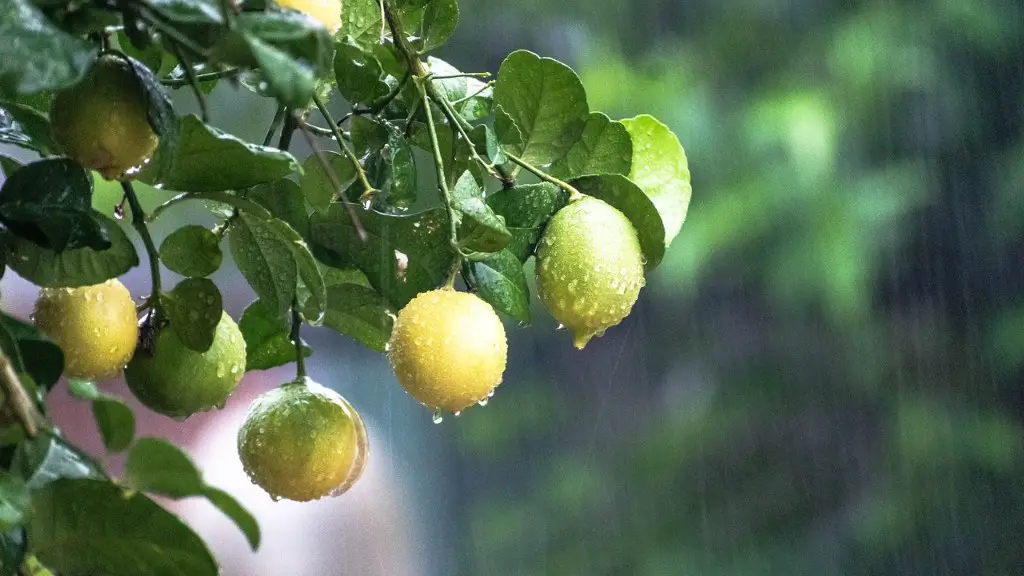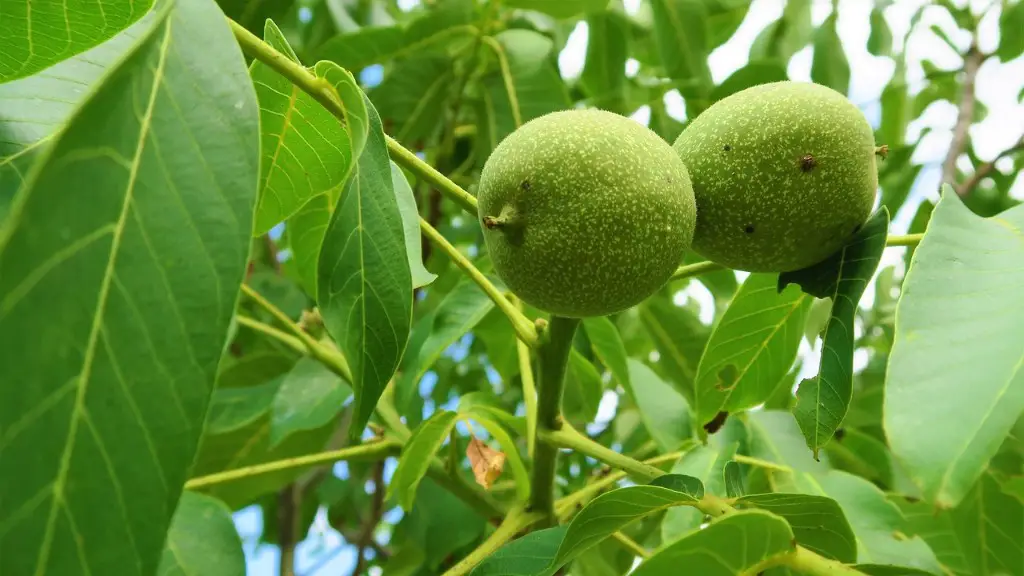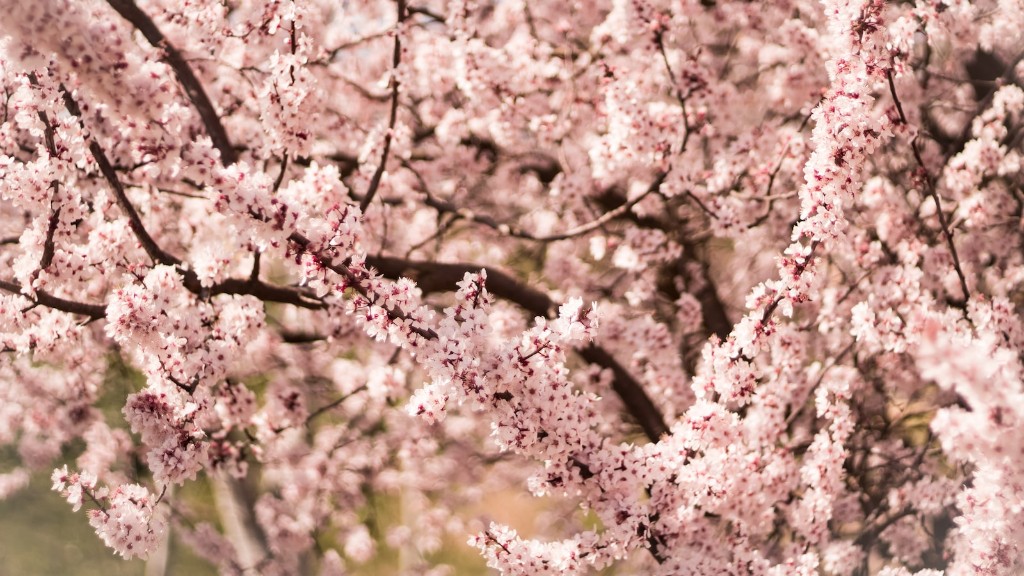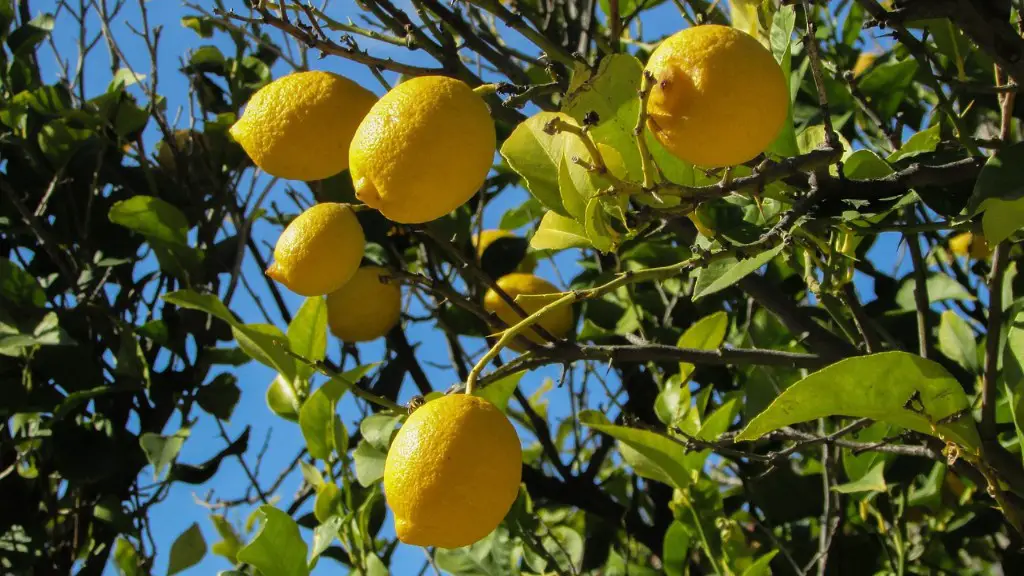If you’re growing lemon trees and have noticed some scale build-up, it’s important to take action right away to prevent the problem from getting worse. Scale insects look like small bumps and can weaken the tree if left untouched. Fortunately, there are several safe and natural solutions you can use to remove scale from a lemon tree. Here’s how.
First, the area should be heavily watered to soften the scale. This should be done at least once a week to maintain the health of the tree and keep it hydrated. Be sure to water after any treatments, as well.
Next, a combination of citrus-based insecticides and horticultural oils can be sprayed onto the leaves of the tree. These solutions are made from naturally occurring citrus oils and are safe for both the environment and lemon tree.
A sprayer should also be used to apply a Horticultural Oil or Neem Oil solution, diluted with water. These solutions naturally repel and control scale infestations and can help to keep them from coming back. You should apply the solution about two times a year.
Finally, paying attention to the culture of the lemon tree is key in preventing scale infestations. Inspect the leaves regularly and prune unhealthy branches as soon as you see them. This promotes overall good tree health, as well as prevents scale from coming back in the future.
What Causes Scale to Form on Lemon Trees?
Scale infestations typically occur when the tree is stressed, usually due to poor soil quality or lack of moisture or nutrients. Insects are attracted to warm, sheltered areas of the tree such as the base of the trunk and limbs. Scale insects can also be introduced on other plants that have been brought into the environment.
Scale insects reproduce quickly and large numbers can form quickly, leading to an infestation. Left untouched, they can cause significant damage to the leaves, bark, and flower and fruit production of the tree.
The presence of scale can easily be diagnosed by the presence of small bumps on the leaves and bark of the tree. These bumps can vary in size and color, but can ultimately weaken the tree, reducing its lifespan and production of fruit.
Prevention of Scale on Lemon Trees
Fortunately, there are several steps that can be taken to prevent scale from forming on lemon trees. One of the primary steps is the regular examination of the trunk and limbs of the tree for any signs of scale infestation. If scale is found, it should be treated immediately.
Maintaining a well-aerated soil, sufficient water and nutrients in the soil, and mulching are also important steps in preventing scale from attacking your lemon tree. Additionally, regular pruning of unhealthy branches should be performed to ensure good tree health.
As scale infestations can be brought in by other plants, it’s important to inspect any plants brought into the environment, especially near the lemon tree. Lastly, regularly spray the tree with a horticultural oil or neem oil solution to naturally keep scale away.
The Pesticide Alternatives to Remove Scale
Using naturally-based insecticides and horticultural oils that are safe for both the environment and lemon tree are great alternatives to traditional chemical pesticides. These solutions are made of citrus oils, and are designed to repel and control scale infestations.
Using the solution should be done in conjunction with proper cultural practices such as watering and pruning. Additionally, it should be sprayed about two times a year on the entire tree for best results.
There are some household substances that can help with scale infestations. Rubbing alcohol, for example, can be used to dissolve the scale when applied directly. Other options include a mixture of water and dishwashing liquid or even a vinegar solution.
These options are safer than chemical pesticides, but can be just as effective. However, they should be used carefully, as they can damage the leaves if not applied correctly.
Other Methods to Remove Scale on Lemon Trees
Other methods to remove scale on lemon trees include the use of natural predators such as ladybugs. Ladybugs are natural pest predators and can be introduced to the area to help control the scale infestation. Additionally, they can be used to promote overall good tree health.
Another option is to introduce beneficial insects such as lacewings, which can be very effective at controlling scale infestations. Finally, wrapping the branches with a fine mesh can be an effective method of preventing scale from attaching themselves to the tree.
Regardless of which method you choose, it is important to be diligent and inspect your lemon tree on a regular basis. This will help with early detection and timely treatment of scale, ultimately preventing any long-term damage from occurring.
Tips for Keeping Lemon Trees Healthy
When it comes to caring for lemon trees, prevention is key. Inspecting for signs of scale on a regular basis and pruning unhealthy branches are important step in keeping the tree healthy and strong.
It is also important to ensure that the tree is given proper watering and nutrients. Organic matter such as compost, manure, or peat moss can be added to the soil to help improve the quality and provide necessary nutrients.
Mulching around the tree can help to conserve moisture and keep weeds away. Lastly, regularly spraying the tree with a horticultural oil or neem oil solution will naturally keep scale away.
Dealing With Severe Infestations
In severe cases of scale infestation, it may be necessary to use a chemical pesticide. This should be done as a last resort, after other natural options have been explored and failed.
It is important to ensure that the chemical pesticide is labeled and approved for use on lemon trees and that the directions are followed closely. Additionally, it is important to avoid excess amounts of chemical, as this can damage the tree and lead to other problems.
The pesticide should also be applied on a calm day with little wind or rain, to ensure that the solution is applied correctly. As always, safety is key when dealing with any chemicals, so it is important to follow all instructions closely.
Conclusion
Scale infestations can cause serious damage to a lemon tree if left untreated, so it is important to take action quickly once signs of infestation have been spotted. There are several natural and chemical solutions available for removing scale from lemon trees, so it is important to carefully evaluate the different options and determine which is best for your situation.




